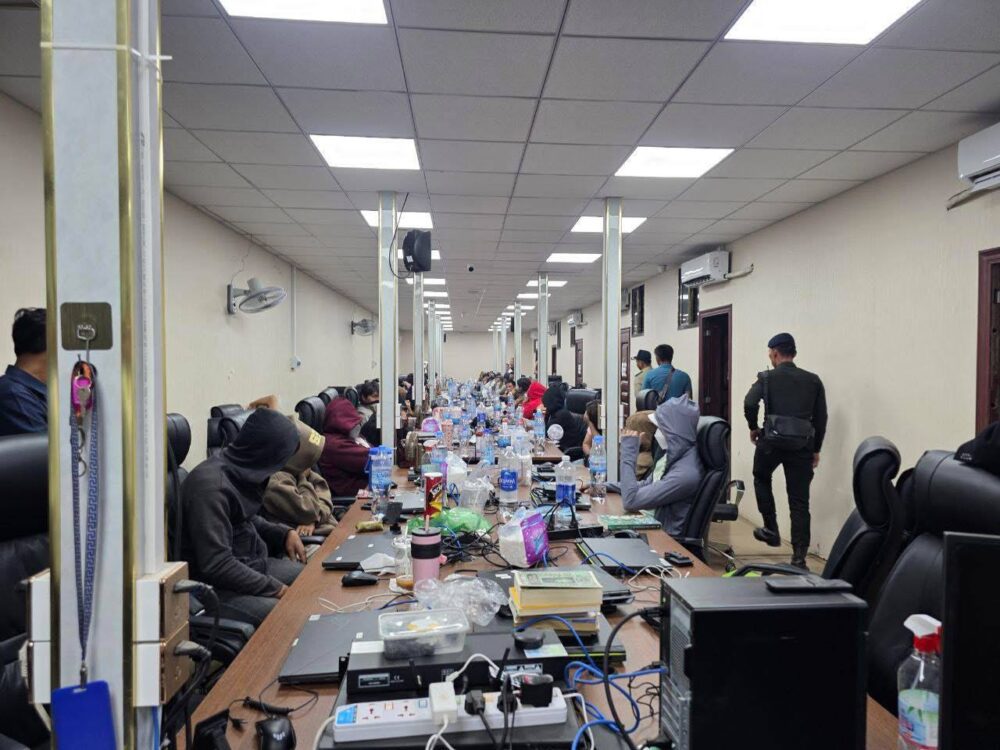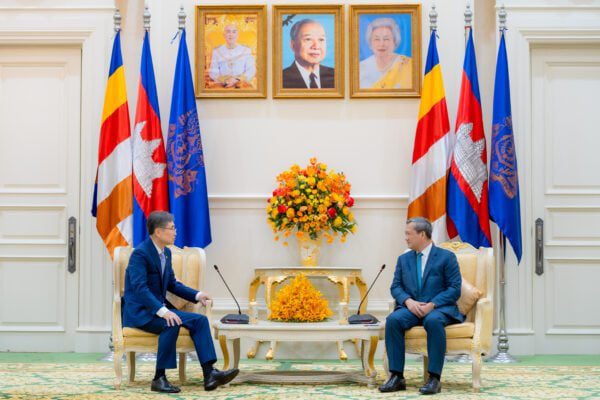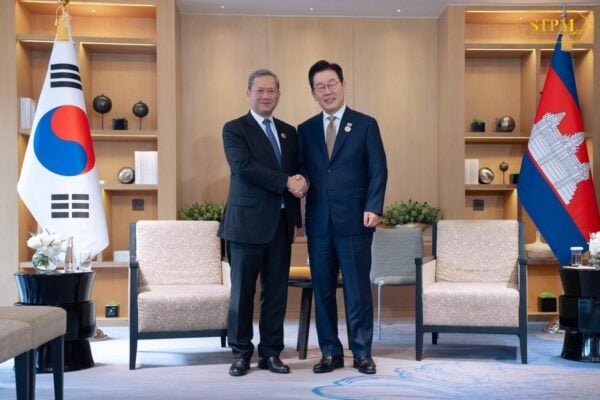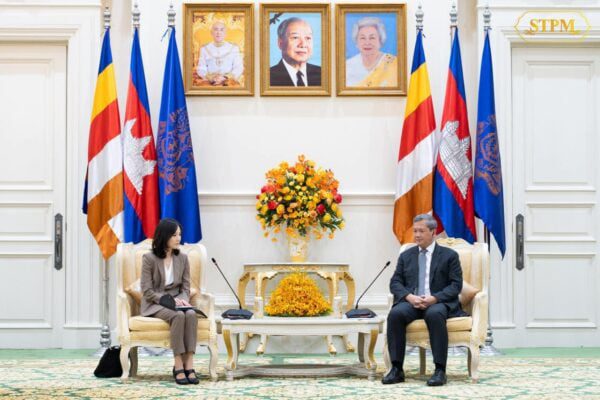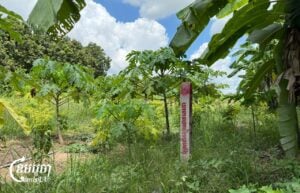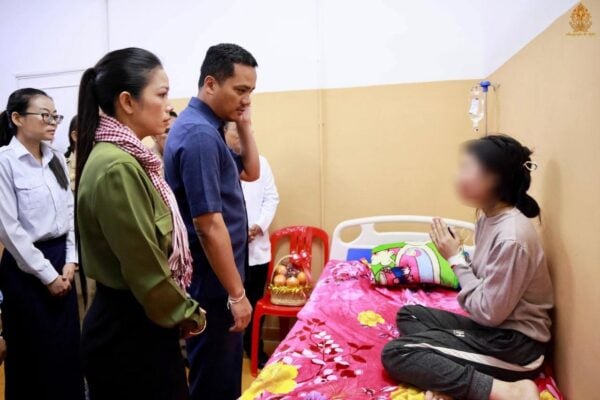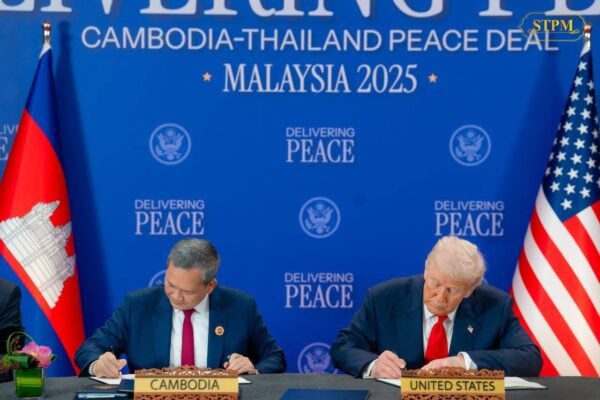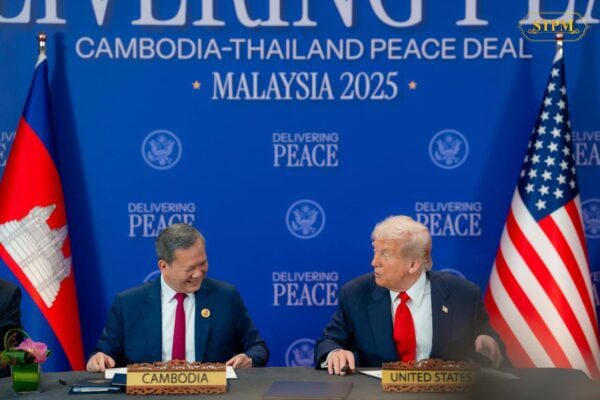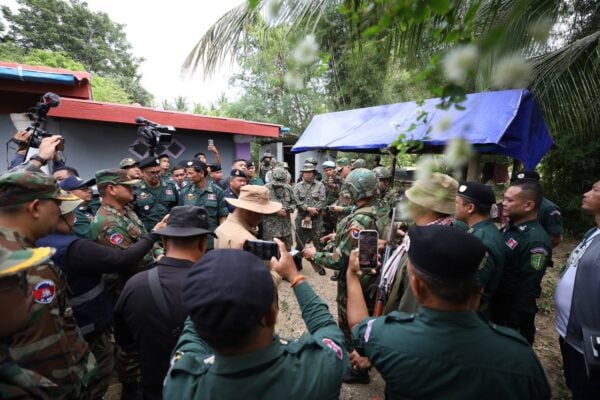Following the death of a South Korean student in Kampot province, South Korean police plan to launch a “Korean Desk” in Cambodia to handle cases involving Korean nationals, citing difficulties in cooperation with Cambodian police. Cambodia’s Ministry of Interior stressed that the country welcomes all international collaboration to prevent and combat crime, but emphasized that a single case should not hinder broader cooperation.
Tensions between Cambodia and South Korea have risen following the death of a 22-year-old Korean student in Kampot province.
The student, who told his family he was visiting Cambodia for an exhibition, was later kidnapped and tortured by a local crime group demanding a $35,000 ransom. His body was found near Bokor Mountain two weeks later, with authorities confirming cardiac arrest caused by severe torture.
The death of a South Korean student in Kampot province has spotlighted growing concerns over cross-border crime and weak law enforcement cooperation between Cambodia and South Korea. As cases of online scams, kidnappings, and violence targeting Korean nationals surge, Seoul is pressing for stronger coordination — including the creation of a “Korean Desk” in Cambodia — while Cambodia insists it remains committed to international collaboration and warns that “one tragic incident” should not overshadow broader diplomatic and crime-fighting efforts.
On Monday, South Korea’s National Police Agency said cooperation with Cambodian police has been more difficult than with other Southeast Asian countries. Acting Commissioner General Yoo Jae-seong plans to meet with deputy commissioner general of the Cambodian National Police next week to seek stronger cooperation, while Korean police plan to work with Interpol and other international bodies to pressure Cambodia to improve collaboration.
National Police spokesperson Chhay Kim Khoeun did not respond at the time of publication.
“We should not let a single case affect cooperation in combating online fraud, because it is a necessary requirement for each state to cooperate,” Interior Ministry spokesperson Touch Sokhak said. “Disrupting diplomatic relations or cooperation is an opportunity for international criminals.”
However, the Kampot Provincial Court released a statement on this issue only after international media reported about the student’s death that three Chinese nationals had been charged with his murder as well as for online fraud.
According to the court, the victim’s body was found in a black Ford F-150 Raptor in Kampot city around 2 a.m. on August 8, 2025. Two Chinese suspects were arrested at the scene. They led police to a villa on Bokor Mountain believed to be the crime site, where a third suspect was apprehended along with evidence of illegal online operations. The three remain in pre-trial detention.
Meanwhile, the Interior Ministry said it has not received any complaint from the victim’s family or the South Korean Embassy.
In South Korea, Foreign Minister Cho Hyun summoned the Cambodian ambassador to protest the incident. Earlier, South Korean police requested a joint autopsy of the student tortured to death in Cambodia. An officer was dispatched last month to identify and repatriate the body, but efforts have been delayed due to limited cooperation from Cambodian authorities.
Owing to this outcome, the setting up of a Korean Desk was suggested to handle cases involving Korean citizens along with the expansion of police consuls and assignment of 30 more officers to international cooperation units.
The Korean Desk initiative will be a key agenda at the upcoming International Police Summit 2025 in Seoul from October 20–23, where both sides are expected to sign an MoU to set up the Korean Desk and dispatch Korean officers to Cambodia.
The first Korean Desk was set up in the Philippines in 2012, followed by another in Thailand.
Jacob Sims, a Harvard visiting fellow and analyst of regional transnational crime networks, told CamboJA News that the Korean Desk is unlikely to receive genuine cooperation from the Cambodian government.
He said Cambodia appears more focused on protecting its reputation than addressing the underlying crimes, with its primary aim being the protection of the industry and elite perpetrators.
Sims added that authorities may arrest low-level offenders as a token gesture, but it is highly unlikely they will take action against influential figures involved in the student’s murder or make a serious effort to combat organized crime.
“It’s possible that they will arrest some nominal, low level criminals as a token response to try to alleviate pressure from the Koreans,” he said. “The problem is, the interests of the elites who wield absolute control over Cambodian government institutions are just too tied up in the crime itself.”
That said, Interior Ministry spokesperson Touch Sokhak welcomed all forms of cooperation and diplomatic engagement aimed at preventing and suppressing crime through joint training, professional exchanges, and information sharing.
He added that Cambodia understands South Korea’s concern for its citizens but urged mutual understanding, noting that Cambodians have also fallen victim to crimes abroad. He emphasized the need for all countries to better educate their citizens about the risks of online scams and fake high-paying job offers.
“Cambodia does not provide safe havens for criminals involved in online fraud or human trafficking,” he said. “Cambodia [government] has actively cracked down on many crimes, rescued victims, and sent cases to court.”
At a workshop on combating technology-based fraud and money laundering on October 8, 2025, Interior Minister Sar Sokha said Cambodia has deported around 15,000 foreigners involved in online crimes over the past two years.
On October 11, 2025, authorities also arrested 80 suspects of seven nationalities — most of them Chinese — during a crackdown on a large-scale technology fraud operation on the 34th floor of the MORGAN Building, a high-end office complex in Phnom Penh.
Am Sam Ath, operations director of rights group Licadho, said that Cambodia should show commitment in cooperation with Korea to increase trust and good partnership.
He added that this case has an effect on international tourism, investment, security and safety in society.
“Cambodia has to increase organization in implementing law, eliminate corruption and increase good cooperation with relevant authorities, regional countries and internationally in order to prevent transmitted crime and online scam effectively,” he added.
Due to rising concerns about the safety of Korean nationals, South Korea’s Ministry of Foreign Affairs issued travel warnings on September 17, advising travelers to reconsider trips to Phnom Penh (Level 2) and designating high-risk areas such as Sihanoukville, Bokor Mountain, and Bavet as Level 2.5. About 200,000 South Koreans visit Cambodia each year.
Reports of Koreans being kidnapped or detained in Cambodia have also surged, reaching 330 cases between January and August this year, up from 221 in 2024 and 21 in 2023.
Additional Reporting by Sok Sreymey


